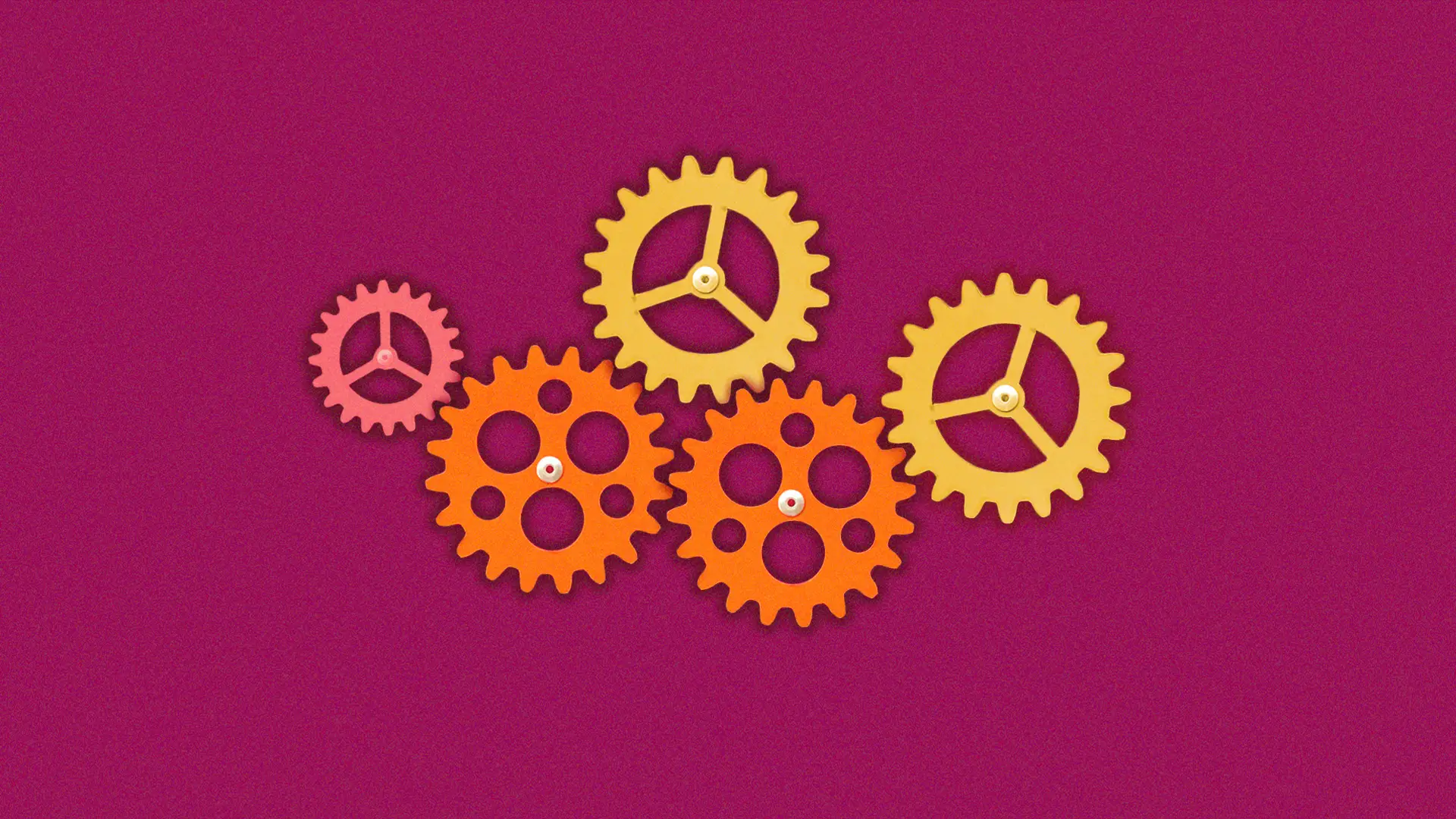

Key Takeaways
- Trust, diversity, experimentation, risk-taking, learning from mistakes, and alignment with a company's brand purpose are all characteristics of high-performing teams.
- High-performing teams are more effective at adapting to change and embracing innovation, including the adoption of artificial intelligence (AI).
- Remote work offers higher team performance and has significant implications for promoting diversity and building an inclusive workplace culture.
- The Talent Insights Report provides a roadmap for companies aiming to create high-performing teams and a thriving workplace culture.
Listen: Agility and creativity: new high-performing team norms.
In this era of rapid technological advancement, the role of dynamic and effective teams has never been more vital. These teams exhibit exceptional agility, solve complex problems, foster a culture of creativity, and engage in ongoing skill development.
Our latest report serves as a rich repository of insights drawn from a global survey of 5,431 professionals spanning the marketing, creative, and design sectors. The primary focus of the report is to delve into the workings of high-performing teams, understand how AI is enhancing their workflow efficiency, and identify which team structures yield optimal productivity.
Our objective is to equip employers and managers with the tools and knowledge they need to cultivate high-performing, resilient teams in an ever-evolving workplace landscape. So, fasten your seatbelts as we unravel these insights to help you steer through the complex terrain of team performance and productivity.
Characteristics of high-performing teams
In a world where change is the only constant, how companies and individuals navigate these shifts can often distinguish the successful from the rest. This is especially true in today's job market, which has seen a significant shift from a candidate-led environment to an employer-driven one. Amid economic uncertainties and increased efficiencies driven by technology, employers are now exercising more control over the hiring process and the nature of work arrangements.
This shift is most evident in the changing attitudes toward remote work. After a period of widespread remote-work opportunities, many employers are now insisting on hybrid or even fully on-site work models, despite substantial resistance from employees.
Moreover, the commitment to diversity, equity, and inclusion (DEI) programs that surged during the racial awakening of 2020 has faced challenges. Many companies have scaled back their investments due to declining business results and political and legal pushback.
The rapid advancement of technology, particularly generative AI, is another significant factor influencing the job market. Companies are just beginning to experiment with integrating AI into their workflows, scaling their usage, and developing practices to protect their businesses.
In the midst of these changes, high-performing teams stand out for their adaptability and willingness to experiment. Over 50% of these teams describe their response to change and innovation as “very effective,” compared to just 14% of low-to-moderately performing teams. With a growth mindset, these high-performing teams leverage their creativity to navigate and thrive in the face of change.
Role of AI in team success
The role of artificial intelligence (AI) in team success cannot be overstated. With its ability to streamline processes, enhance decision-making, and foster innovation, AI has become an invaluable tool for high-performing teams. Our latest Talent Insights Report dives into how these teams adapt to change, embrace innovation, and utilize AI tools for maximum efficiency and productivity.
Our data reveals that a whopping 96% of high-performing teams are very or moderately effective at adapting to change and embracing innovation, compared to 73% of low-to-moderately performing teams. This suggests that a team's willingness to take risks, experiment with new approaches, and implement advanced tools like AI significantly contributes to their success.
While the adoption of AI is still in the early stages across many sectors, our survey data already shows a trend among high-performing teams. An impressive 41% of these teams rated their level of AI adoption as excellent or good, starkly contrasting the mere 26% reported by low-to-moderately performing teams.
Although these figures indicate that we have a long way to go before AI is fully integrated into all aspects of work, it's clear that high-performing teams are leading the way as early adopters of this transformative technology. As we continue to navigate the evolving landscape of team performance and productivity, the role of AI will undoubtedly become increasingly central to team success.
The rise of remote work
The benefits of remote work on team performance are increasingly being recognized in today's evolving business landscape. As per various sources, remote work offers a multitude of advantages for both employers and employees, including improved work-life balance, increased productivity, enhanced employee retention, access to a global talent pool, and greater diversity of candidates.
Despite some executives pushing for a return to the office, the data indicates that teams with the flexibility to work remotely often outperform their on-site counterparts. According to Talent Insights data, 66% of remote teams were identified as high performing, compared to just 47% of on-site teams. This suggests that remote work can lead to heightened productivity and overall team performance by reducing distractions and enabling a healthier work-life balance.
These findings underscore the importance of adapting to the changing nature of work and leveraging remote-work arrangements to foster high-performing, resilient teams. As we continue to navigate the future of work, these insights can guide employers and managers in making informed decisions that align with their team's needs and the broader trends shaping the workplace.
Connection between remote work and diversity
Remote work has been a game changer in promoting diversity and inclusion in the workplace. By eliminating geographic boundaries, remote work opens up opportunities for a broader range of candidates, including those from diverse cultural backgrounds, working parents, and individuals with disabilities. This can lead to more diverse teams, which are known to be more innovative and effective.
The latest Talent Insights Report reveals a clear correlation between remote work, diversity, and team performance. According to the data, 79% of remote teams are very or moderately successful at seeking diverse perspectives, compared to 61% of on-site teams. This suggests that remote work fosters an environment where diverse viewpoints are valued and sought after, contributing to a more inclusive workplace culture.
High-performing teams are also 15% more likely to seek out diverse viewpoints, according to the data. This finding aligns with numerous studies suggesting that diverse teams tend to outperform their less diverse counterparts due to a wider range of experiences, skills, and perspectives contributing to problem-solving and decision-making processes.
The shift toward remote work is not just a temporary trend. It has significant implications for promoting diversity, improving team performance, and building a more inclusive and equitable future of work.
Conclusion: key takeaways
Workplaces are currently experiencing substantial changes, with shifts in staffing, an increased focus on diversity, equity, and inclusion (DEI), a rise in remote work, and the integration of AI. These changes necessitate a reevaluation and reformulation of what constitutes high-performance teamwork. The Talent Insights Report provides pertinent insights for companies aiming to refine their workplace culture, strategies, and decisions. Here are the main points:
- Characteristics of High-Performing Teams: The report identifies eight key characteristics of high-performing teams, including trust and diverse perspectives. These teams display a willingness to take risks, experiment, learn from failure, and embrace new approaches, including the implementation of AI tools. It is also becoming more and more important to foster a strong, purpose-driven culture because employees are looking for alignment with the brand purpose and values of their organization..
- Adoption of AI: A striking 96% of high-performing teams are very or moderately effective at adapting to change and embracing innovation. Teams that are open to adopting AI tools often experience enhanced workflow efficiency, demonstrating the potential of AI to boost team performance.
- Impact of Work Location: The data shows a 19-percentage-point difference between remote teams and on-site teams in terms of high performance, with 66% of remote teams identifying as high performing versus 47% of on-site teams. This suggests that remote work not only supports diversity and inclusion but also drives superior outcomes.
These insights provide a roadmap for companies aiming to create high-performing teams and a thriving workplace culture. However, they represent just the tip of the iceberg. For a more comprehensive understanding, we highly recommend reading the full Talent Insights Report.
Related

Great brand collaborations are the best to strengthen identity.
Design & Experience, Insights & Trends, Marketing & Creative, Beauty and Fashion

Consumer demand and policy are driving EV market growth.
Development & Technology, Insights & Trends, Automotive

Are you missing opportunities to improve health screenings?
Design & Experience, Marketing & Creative, Health
